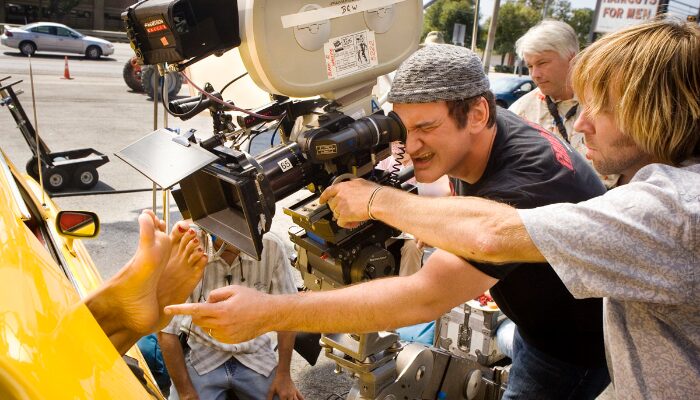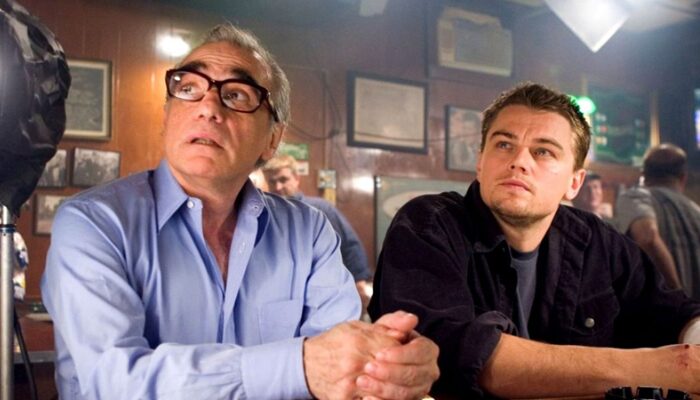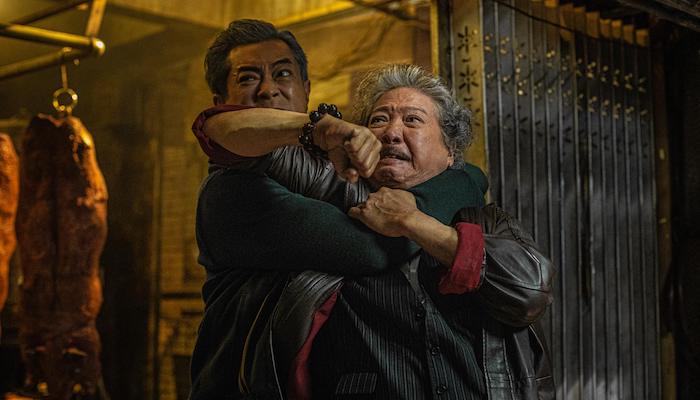Film Review: THE MERMAID (2016): Charm, Pizzazz, & Comedy Deliver Ecological Message
The Mermaid Review
The Mermaid (2016) Film Review, a movie directed by Stephen Chow, starring Lin Yun, Kris Wu, Chao Deng, Show Luo, Ke Bai, and Pierre Bourdaud.
We live in a world whose motto is “get as rich as you can.” The dream is to drive the Ferrari, the Lamborghini, have the six bedroom house, and vacation in the Caribbean four times a year. What many films often don’t show are the consequences of the acquisition of wealth, some through actions that damage our ecosystem. That is not the case with Stephen Chow’s The Mermaid, whose moral imperative is that humanity must take care of its planet.
The purpose of a corporation is to make money and Liu Xuan (Chao Deng) is a corporation personified. His one and only goal in life is to make money. He is the epitome of the American dream; he came from absolute poverty (having to eat food found on the streets) to becoming one of the world’s wealthiest men. His drive to make money is nothing short of apocalyptic.
Liu Xuan’s purchase of Green Gulf seems laughable to his friends because it is a dolphin sanctuary and by law, nothing and no one can develop that area for commercial ventures. On the sly, Liu places a sonar device in the water that decimates all living creatures in the gulf, forcing the surviving animals to relocate or perish. Now that there are no more dolphins (or life) in the gulf, it cannot be considered a sanctuary and can be used by Liu Xuan as he sees fit. Stephen Chow uses hyperbole like this in The Mermaid to show just how far one man (or corporation) will go for money.
Ruolan (Yuqi Zhang), Liu’s female equal in ambition and love of money, represents the aristocracy in The Mermaid. Ruolan is as beautiful as she is ruthless. Ruolan’s constant insults about Liu Xuan’s poverty-ridden past always cause him to stay one step away from Ruolan. Though Ruolan’s comments give Liu pause, they aren’t the cause of Liu’s avoidance of a true, meaningful relationship with her.
Many of the most notable fairy tales contain a mythical creature and The Mermaid is no different. By slapstick, comedic chance, the kind that only happens when stars align, Liu meets mermaid Jelly Lin a.k.a Shan (Yun Lin). After spending a day together, Liu begins to let his inner child and innocence come forth (his first step toward humanity). Liu falls in love with Shan and proposes the next day though his business world mentality, lack of humanity, and decorum eventually shine through. He aggressively takes Shan’s hand and places a ring on her finger and states “marry me!,” an allusion to the rich seeing something they want and eventually trying to possess it.
Love is one of the things that can fundamentally change a person. The Mermaid proved that Liu is no different in that regard.
When Liu ends up in Ruolan’s bedroom later in the film, we are transported into a room where power and profit are transmogrified into the tangible. The lavishly seductive bedroom where greed oozes off the gold-colored furniture and the red-hue of lust is only accentuated by Ruolan’s black, lacey, and expertly tantalizing lingerie. Through this experience and from this vantage point, Liu’s eyes are finally opened.
Laying on the bed bored and waiting for her lover to come and join her, Ruolan says “You’ve been watching this for two hours already.” Liu had been ravenously watching reel after reel of the slaughter of marine life and the seas filling with blood. “Still want to watch the kiddie show?” With her perfectly bored voice, Ruolan shows us the guiltless conscience of the rich towards the damage that is dispensed in profit’s name. By calling the appalling pictures of a sea filled with blood and dolphins being pulled into boats with metal hooks “the kiddie show,” The Mermaid shows just how indifferent and desensitized some of us are when it comes to the destruction of marine life and the Earth.
The beautiful gold and red bedroom and the gorgeous woman waiting to be taken are perfectly offset by the blood, gore, and suffering that is taking place on the computer screen. The awoken, seismic understanding and the consequences of what Liu and his corporation have been doing to the planet leads to his inevitable retreat from Ruolan.
The ending of The Mermaid, with Liu giving away his fortune to save the environment, may have been Stephen Chow’s fantasy call for real-world billionaires to follow suit. Using satire and comedy, Chow attempts to shame corporations that are affecting the environment in a negative way and open our eyes to the destruction of our world. The Mermaid uses charm, pizzazz, and comedy to pound the message home: we need to take care of Gaia.
Rating: 8/10
Leave your thoughts on The Mermaid review and this film below in the comments section. For more film reviews, visit our Movie Review Page, our Movie Review Facebook Page, our Movie Review Google+ Page, and consider subscribing to us by Email, “following” us on Twitter, Tumblr, Google+ or “liking” us on Facebook for quick updates.
Related Articles
FilmBook's Newsletter
Subscribe to FilmBook’s Daily Newsletter for the latest news!













